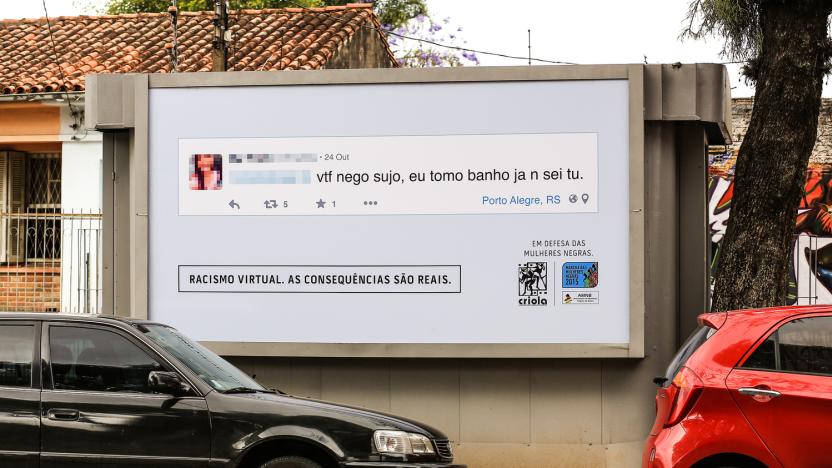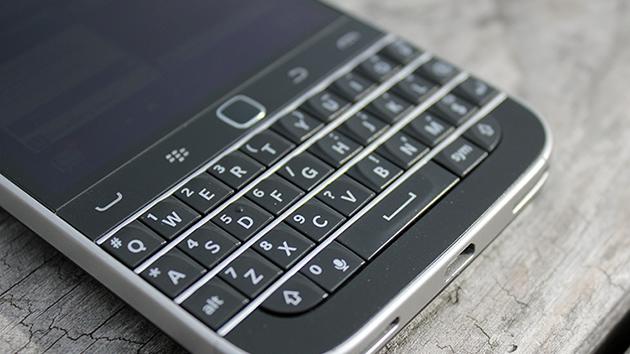brazil
Latest

Brazil's biggest city wants to charge fees for Uber rides
Many cities try to limit or ban ridesharing services like Uber, but Sao Paulo is trying an uncommon strategy to keep the companies in check: skimming a little off the top. The major Brazilian city has proposed a requirement these services have to buy government credits to cover their distance traveled, with rates changing based on when and where the trip takes place. App makers would also have to support a service that picks up multiple passengers headed in the same direction, although that won't be hard when options like UberPool already exist.

Brazil temporarily shuts down WhatsApp messenger (updated)
If you've seen "WhatsApp" trend on Twitter lately, it's because a judge in Sau Paulo, Brazil has ordered for the messaging app to be shut down for 48 hours, starting at 9PM Eastern yesterday. WhatsApp is huge in Brazil: it has a whopping 93 million users in the country, so this development affects a large number of people. That's most likely the reason a rival app called Telegram Messenger has been seeing rapid adoption in Brazil, amassing 1.5 million new users in the past few hours.

Researchers confirm Humpty Dumpty really can't be put together again
Researchers at the Federal University of ABC, in Brazil, have made a major breakthrough: they've confirmed that thermodynamic processes cannot be reversed, even in a quantum system. This revelation not only explains a fundamental aspect of our universe but could also influence how quantum computing systems are designed.

Post a racist comment online, see it on a billboard near your house
Messages posted on Facebook, Twitter and other online spaces may feel like they carry less weight than things said in the physical world -- but that's not the case, argues Brazilian civil-rights group Criola. This year, Criola launched a campaign labeled, "Virtual racism, real consequences," which pulls racially bigoted comments from the internet and places them on billboards in the neighborhoods where the commenters live. Criola finds racist messages online and then uses geotag data to locate the author's neighborhood; the group then rents billboard space nearby and prints the comments for the world -- and the original writer -- to see. The names and images of the commenters are blurred out, but the message rings clear: Things said online affect people in real life, in real ways.

Microsoft's email/texting app Send is available on Android
Earlier this summer Microsoft debuted Send, an app which aimed to combine the most usable features from instant messaging and email into a unified experience. It debuted as an iOS-only app but on Wednesday the company released Send (beta) for the Android OS. Its availability is also expanding -- while it was previously limited to the US and Canada, now UK, Brazil and Denmark users (with an Office 365 business or education account) can try Send out on either platform, complete with GIFs. Windows Phone is still the odd one out, but Microsoft say it is "currently working" on a version for its own mobile platform.

ASUS makes a ZenFone 2 with a whopping 256GB of storage
Smartphones with more than 128GB of storage are still extremely rare, but they just became a little more accessible... if you live in Brazil, at least. ASUS has unveiled a Deluxe Special Edition of the ZenFone 2 that includes a cavernous 256GB of storage. You won't be hunting for a microSD card any time soon if you pick this up, folks. You'll also have the choice of carbon fiber- or crystal-like backs instead of the more pedestrian shells of the usual ZenFone 2. This special run arrives in Brazil this September. There's no mention of it reaching other countries, but here's hoping that it does -- cloud storage and streaming media will only go so far when you want lots of apps and videos at your fingertips. Update: ASUS has clarified that this 256GB model actually uses a combination of 128GB onboard storage and 128GB microSD expansion. Still a pretty tempting package, though. [Image credit: ASUS Fanaticos]

Gene-modded mosquitoes will fight Dengue Fever in Brazil
The Brazilian city of Piracicaba has a potent new weapon in the ongoing fight against Dengue Fever, which infects more than a million people annually: genetically modified mosquito lotharios Created by Oxitec of Abingdon, UK and bred locally within Brazil, these GM mosquitoes (all of which are male) are designed to crash the local population before they can spread the tropical disease. More than six million have been released throughout Piracicaba since April. When a GM male mates with a wild female, his sapper genetics cause the resulting larvae to die before they can reach adulthood. What's more, the larvae also carry a genetic mutation that causes them to glow red under UV light, giving researchers an easy way to identify them on sight. "It gives an instant readout of how successfully you're driving down the native population," Hadyn Parry, chief executive of Oxitec, told New Scientist.

BlackBerry Messenger helps uncover a Brazilian corruption scandal
Some less-than-ethical businesspeople are learning the hard way that even secure messaging systems aren't all that private. Brazilian authorities have used BlackBerry Messenger records (obtained through warrants and BlackBerry's help) to level corruption charges against over 100 people skimming money from the country's state-owned oil company, Petrobras. The chats not only confirmed relationships between culprits, but indicated when people were arranging cash drop-offs and other suspicious activities. There aren't any convictions just yet, but it may be hard for at least some suspects to deny that they're involved.

Brazil used Tinder bots to promote AIDS awareness
Despite what Tinder execs say, everyone knows what the app's actually used for (hint: it's casual sex), which explains why the Brazilian government (Portuguese) has used the mobile app to spread the word about AIDS. It also brought Hornet, an app aimed at gay males, into the fold and created accounts on each in an effort to raise awareness for condom use. The faux profiles were for three men and two ladies who're pretty open about their interest in prophylactic-free intercourse, and, should a Brazilian match with any of them, they'll immediately get a message warning them about the risks of unprotected sex. Given the country's struggles with the disease, hopefully it's effective.

Brazil's enormous taxes chase Nintendo out of the country
After this month, Nintendo will halt all direct sales in Brazil. According to UOL Jogos, the company's leaving the country due to the exorbitant taxes it has to pay to continue its operations. Bill van Zyll, the company's general manager in Latin America, said in a statement that "Brazil is an important market for Nintendo," but the company had to make this decision, as its "current distribution model [is] unsustainable in the country." Chances are, some unauthorized sources are already selling imported consoles and games in Brazil. But if you'd rather buy a 3DS or a Wii U from stores that get its supplies from Nintendo's local partner, Juegos de Video Latinoamérica, you may want to do so soon.

Nintendo halting console and software distribution in Brazil
Nintendo will end its distribution of hardware and software in Brazil due to high import tariffs. The company opted not to create a local manufacturing operation to avoid the import fees in the emerging market. "Starting in January 2015, Gaming do Brasil, a wholly-owned subsidiary of Juegos de Video Latinoamérica, GmbH, will no longer distribute Nintendo products in Brazil," Nintendo stated to Game Informer. "Despite the changes in Brazil, Juegos de Video Latinoamérica will continue to be Nintendo's distributor for Latin America and they remain committed to the brand and the region." To get a sense of the sticker shock these tariffs have, when Sony's $400 PlayStation 4 launched in Brazil it was approximately $1,800. Sony explained at the time the mark-up was caused by various import fees and taxes. "Brazil is an important market for Nintendo and home to many passionate fans, but unfortunately, challenges in the local business environment have made our current distribution model in the country unsustainable," said Nintendo. "We will continue to monitor the evolution of the business environment and evaluate how best to serve our Brazilian fans in the future."

Collaborative mapping project will chart the Amazon's rivers
Crowdsourced mapping efforts are helpful in many places, but they're most useful in corners of the globe where even the professional maps are incomplete -- you can address gaps in coverage that might be difficult for distant observers to fill. And OpenStreetMap knows it. The community-driven site has just launched Mapazonia, a project that asks you to help chart the Amazon's rivers and roads. It's not expecting comprehensive data when the area spans 2.1 million square miles, but it believes that your first-hand knowledge could put missing towns on the map and fix inaccuracies in the shoreline.

Mail carriers are mapping Brazil's favelas before tech companies can
Google and Microsoft may be trying hard to produce online maps for Brazil's favelas, but they've already been beaten by an old-fashioned (if very clever) paper solution. A private mail-delivery service operating in the Rocinha favela, Friendly Mailman, has been methodically charting the slum by using handwritten algorithms that detail every street and building. This system is indecipherable if you aren't one of the mail carriers, but it's reportedly very effective -- staff can both deliver packages to unofficial addresses and adapt to the favela's ever-changing landscape. Apparently, the approach is good enough that Google unsuccessfully requested a photo of Friendly Mailman's map. While that refusal isn't good news for internet users wanting to understand the favelas, the analog code is already helping locals send letters, receive online orders and otherwise communicate with the world at large. [Image credit: Mario Tama/Getty Images]

White Xbox One Master Chief Collection bundle Brazil-bound, 'no plans' for US release
Xbox One owners in Brazil can look forward to a shiny white Xbox One in early 2015, when it will arrive carrying a copy of Halo: The Master Chief Collection in its box. Microsoft announced the special Xbox One / Master Chief Collection bundle this week during the Brazil Game Show, later telling IGN that it will also release in "select additional markets." It will cost 2,000 BRL. Unfortunately, a Microsoft rep also confirmed to IGN that the company has "no plans" to release the bundle stateside. US residents who prefer white can still find satisfaction via the Sunset Overdrive bundle though, which will contain a white Xbox One and a copy of Insomniac's Xbox One-exclusive energy-drinking-mutant-apocalypse romp when it launches on October 28. [Image: Microsoft]

Google and Microsoft want to put Brazil's favelas on the map
To the Brazilian government, favelas, often referred to as "the slums," don't portray an image they're willing to share with the world. So much so, in fact, that during the past World Cup some favela residents were reportedly being forced to leave their homes behind, as Brazil officials were looking to polish areas surrounding the stadiums playing host to the most watched sporting event on the planet. In Rio de Janeiro, favelas make up roughly a quarter of the population, yet somehow they aren't often found city maps, either physical or online. To help with the latter, The Wall Street Journal is reporting that Google and Microsoft have begun mapping Rio's favelas, albeit both companies are doing so in separate initiatives.

Apple removes "Secret" app from Brazilian App Store per Judge's ruling
A Brazilian judge a few days ago informed both Google and Apple that they had a few days to remove the Secret app from their respective app stores and remotely delete the app from users' devices. In case you're unfamiliar, Secret is an app that enables users to anonymously post, well, secrets that they might not ordinarily express without a cloak of secrecy. Think of it as PostSecret gone mobile. So why all the fuss about Secret in Brazil? Well apparently anonymity in the country is illegal. Gigaom reports: In his ruling, judge Paulo César de Carvalho pointed out that the Brazilian constitution says "the privacy, private life, honor and image of persons are inviolable, and the right to compensation for property or moral damages resulting from their violation is ensured." The constitution also backs free expression, but to square that with its privacy elements it forbids anonymity. Now comes word via 9to5Mac that Apple has, in fact, removed Secret from the Brazilian App Store. Users searching for the app are now greeted with an "Item Not Available" alert message. At this point it remains unclear whether or not Apple or Google have gone so far as to remotely delete the app from iOS and Android devices, but we'll keep you posted once we find out more.

Apple blocks access to Secret in Brazil after anti-bullying ruling
A few days ago, a Brazilian judge ordered Apple and Google to pull Secret from the local app store and wipe it from the handsets of whose who had downloaded it. The same ruling covered Microsoft, who was ordered to do the same to Windows Phone clone Cryptic. So far, however, only Apple has begun to comply with the order, after suspending fresh downloads of the app to iOS accounts registered in Brazil. According to local news media, the company hasn't started pulling the software from individual handsets, but that's still more than Google or Microsoft have done. Both companies claim that they've not been directly notified of the widely-reported ruling, although it's more likely that they're waiting on a final decision from the courts before taking any action.

Brazilian judge tells Apple and Google to pull Secret from people's devices
Secret's app is ostensibly meant for office gossip and getting transgressions out of your system, but it has also been abused by bullies wanting to intimidate and shame others. Well, one Brazilian judge is fed up with that misuse -- enough so that he's ordering Apple and Google to remove Secret not just from their respective local app stores, but from people's devices. Microsoft also has to yank Cryptic, an equivalent Windows Phone app. If the companies don't take action within 10 days, they face fines of 20,000 Reals ($8,876) per day. That's a drop in the bucket given their massive revenue streams, but it's reasonable to say that they'd rather not pay that much just to keep one title available in one country.

FIFA 15 won't feature Brazilian clubs due to licensing
Unlike FIFA 14, Brazilian domestic clubs and the players belonging to them don't feature in FIFA 15. EA revealed this week that, because of changes to how Brazil's domestic league licenses players - the company didn't note what those changes might be - it failed to reach an agreement that would let players feature in its latest sportsballer. So, while players in Brazil's national team and Brazilian players based abroad still feature, it's adeus to the likes of Palmieras, Santos and Flamengo. After Brazil's disassembling by Germany at the World Cup, we wonder if the country's fans would have things that way 'round. With that elephant in the room crudely dealt with, all that's left to say is FIFA 15 is coming to another bevy of platforms this year, starting with Xbox One, PS4 and PC on September 23 in North America, and September 26 in Europe.

Apple TV launches sports channel in Brazil
Apple TV is expanding once again, this time bringing a local television station option to customers in Brazil. Esporte Interativo Plus will feature UEFA Champions League soccer games along with other live local spots content. In a statement to the Financial Times the channel's vice-president Leonardo Lenz Cesar bragged about the expansion. This is the first local channel of Apple TV in Brazil and the first live sports channel. High quality global journalism requires investment. Why is Apple doing this with us? Because since this app was launched on the iPhone, it was the most profitable sports app that Apple has launched in Brazil. Apple has been expanding its TV offerings over the last year, bringing new channels and options to customers across the globe. Previously, Apple TV only offered Brazilian customers services like YouTube and Netflix; this move is the company's first attempt to compete with local pay TV networks in the area. As more and more people cut ties with pay television services, expansions like this one are important to Apple building Apple TV into a reasonable alternative to big cable companies. It won't be surprising to see more deals with local channels in the future as the service continues to grow and expand.











